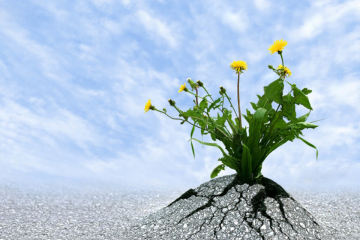
How are you curious?
The other day, I met a recruiter who works for a large, global company. She specializes in recruiting entry-level employees out of college or those with a newly minted MBA. We talked about confidence, and I shared how so many of my clients of all ages and levels of experience talk about their own lack of confidence. I was curious about what she has witnessed in her job as a recruiter. Her word…arrogance. She said it was a big problem with MBA graduates in particular. From showing up with a lack of confidence to being too sure of yourself and showing up as arrogant, what is a good way to approach a high-stakes situation like applying for a job? I encourage you to try leaning into curiosity. Being curious is such a powerful tool! |
#WiseWords
sense of what you see and wonder about what makes the universe exist.
Be curious. And however difficult life may seem, there is always something
you can do and succeed at.
It matters that you don’t just give up.”
Worth The Share

When I think about being curious, I think about being inquisitive or interested in something or someone. But when I started digging into the subject, I learned that it is not simply about being curious, but about answering the question: How are you curious?
There are five different types of curiosity, according to HBR’s series on why curiosity matters, and they run the gamut. Which of these five most resonate with you? If you are not sure, check out the article because it includes a quick assessment you can take.
- Deprivation Sensitivity: Those who need to solve a problem, or they will stay up all night thinking about it. They are coming from a place of deprivation.
- Joyous Exploration: Those who look around the world with a sense of wonder.
- Social Curiosity: Those who actively talk, listen and observe others to learn.
- Stress Tolerance: Those who “accept and even harness a level of anxiety”.
- Thrill Seeking: Those who take physical, social or financial risk.
The authors also correlate the different types of curiosity to work outcomes, stating that Social Curiosity and Stress Tolerance are particularly relevant. People who are socially curious are good for collaboration and building trust and cooperation, while those who can handle stress seek challenges, can manage limited resources and are not afraid to speak up.
Take a minute and check out: The Five Dimensions of Curiosity
And Finally...

One of my current clients is a fairly new manager at a tech start-up that has a couple of hundred employees. They are a disrupter, and doing quite well as they have quickly pivoted to adjust to the changing marketplace.
“Brad” has mentioned his own lack of confidence over a dozen of times on our calls. We just reviewed his 360 report, and it was impressive. He is committed to his team and their professional development. He is passionate about his own professional development. On every measure he seems to be doing very well, so how come he lacks confidence?
By reframing his lack of confidence, and leaning into curiosity, Brad has been able to approach things differently. Try it. Next time you don’t feel confident, maybe try to be curious instead. See how it works for you.
Have a great week,
Mary Jo



